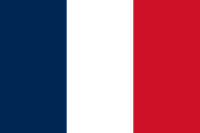 Riots broke out in a Paris suburb this weekend after police ticketed a woman wearing the full Islamic veil, or burqa, on a local street. Since 2011, France has banned the burqa in public places on pain of a €150 fine. The details of this weekend’s incident are unclear, but police apparently asked the woman to remove her veil as part of an identity check. An altercation ensued, and the woman’s husband allegedly assaulted the officers. The officers then arrested the husband, and in response at least 250 people besieged the local police station, throwing fireworks and setting refuse bins and vehicles on fire. According to France 24, four police officers have been injured . The violence has continued for three nights .
Riots broke out in a Paris suburb this weekend after police ticketed a woman wearing the full Islamic veil, or burqa, on a local street. Since 2011, France has banned the burqa in public places on pain of a €150 fine. The details of this weekend’s incident are unclear, but police apparently asked the woman to remove her veil as part of an identity check. An altercation ensued, and the woman’s husband allegedly assaulted the officers. The officers then arrested the husband, and in response at least 250 people besieged the local police station, throwing fireworks and setting refuse bins and vehicles on fire. According to France 24, four police officers have been injured . The violence has continued for three nights .
The burqa ban has been controversial from the beginning. Supporters argue that it’s a necessary safety measure: terrorists could use the burqa as a disguise. But, observing the debate from this side of the Atlantic, safety issues don’t seem central. Most of the emotion in the debate relates to the burqa’s symbolic impact. The French Right supports the ban because the burqa suggests the presence of an alien culture that refuses to be French. The Left is divided. Some on the Left support the ban because the burqa suggests the subjugation of women; others argue that the burqa controversy is a sideshow to distract from France’s real social problems. And of course many French Muslims–though not all–see the ban as evidence of racism and Islamophobia. Not to mention a violation of religious freedom.
Behind the controversy is a debate about the meaning of laïcité, that peculiarly French contribution to law and religion. Often translated loosely as “secularism,” laïcité is one of the foundations of French republicanism. But its meaning is, and always has been, contested . On one view, laïcité means only that the state should have no official ties to religion and that citizens should be free to follow whatever religion they wish. On this understanding, the ban is problematic. What legitimate reason does a liberal state have for banning religious dress in public? (A liberal state, note — not a state with a religious foundation or a “thick” conception of the public good). Public safety, surely: but the French government doesn’t ban knapsacks or raincoats, which pose greater risks. What about the fact that some women are forced to wear the burqa by family members? That’s a legitimate state concern, too. But there must be ways to address that concern that don’t involve forbidding public religious expression by women who do wish to wear the veil.
Perhaps laïcité means something different, though, something more aggressive. Perhaps laïcité requires a naked public square, in order to rid society of the influence of religions that stand in the way of progress. This view has a long lineage in France as well. Rousseau, recall, taught that society must force people to be free. On this view of laïcité, the burqa ban makes more sense. The burqa is forbidden even if women wear it voluntarily –indeed, especially if women wear it voluntarily. How else is equality to be achieved?
A few hundred women have been cited for wearing the burqa since the ban went into effect. Almost none of the citations, apparently, have led to incidents like this weekend’s. This weekend’s riots suggest, though, that the burqa ban remains deeply unpopular in some French neighborhoods, and that the controversy is far from over.
Time is short, so I’ll be direct: FIRST THINGS needs you. And we need you by December 31 at 11:59 p.m., when the clock will strike zero. Give now at supportfirstthings.com.
First Things does not hesitate to call out what is bad. Today, there is much to call out. Yet our editors, authors, and readers like you share a greater purpose. And we are guided by a deeper, more enduring hope.
Your gift of $50, $100, or even $250 or more will bring this message of hope to many more people in the new year.
Make your gift now at supportfirstthings.com.
First Things needs you. I’m confident you’ll answer the call.



